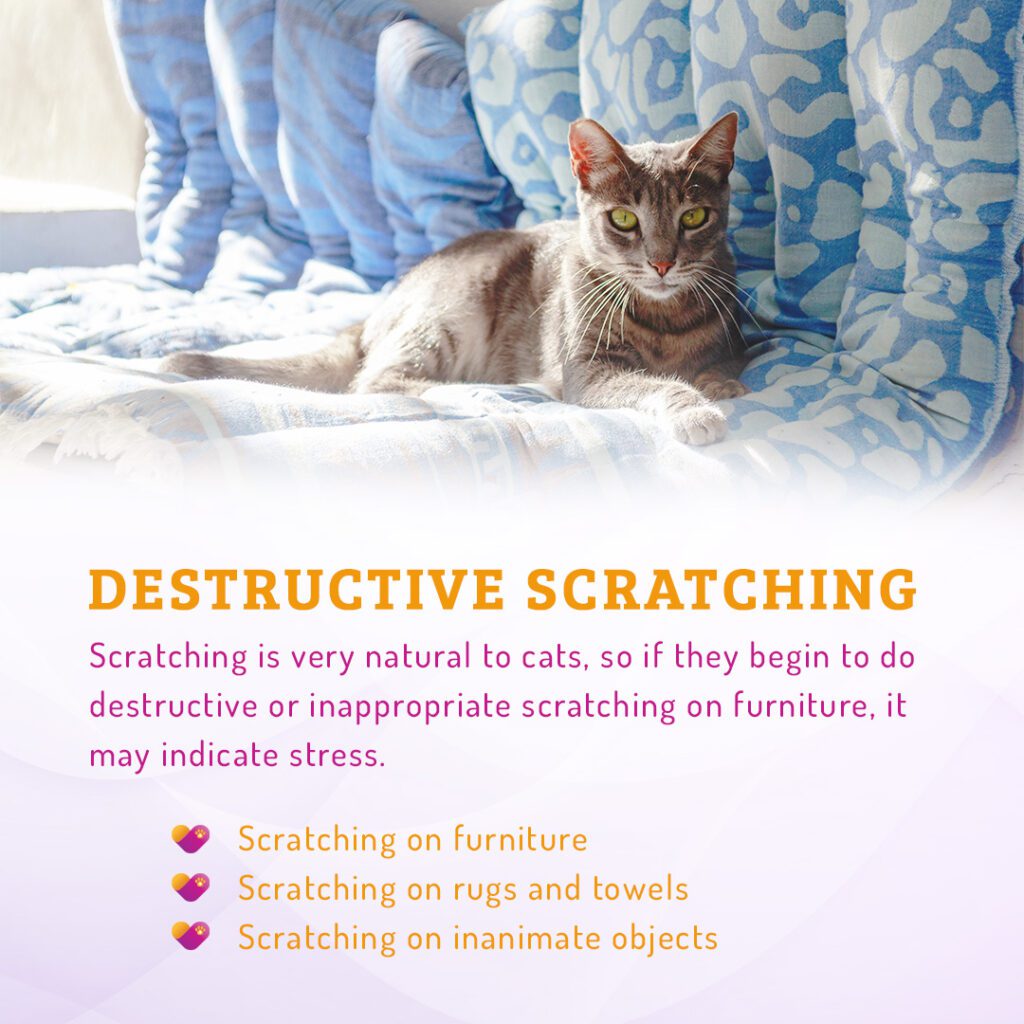Find out what may be the cause of stress in your cat!
Much like us, cats can suffer from stress, too. And while all cats have unique personalities that come off as aloof or anti-social, sometimes it may just be a result of stress and anxiety.
So, how do you know when your cat is stressed out?
As a cat owner, it’s vital to address the health and wellness of your cat, including any stress! The Vet Set in Carroll Gardens provides cat wellness exams to help pinpoint any stressors your cat may have. Take a moment with us today and learn more about what may be stressing your cat out.
Stress in Cats
We know that cats can experience stress, and it often has the same crippling health effects as it does in humans that can lead to both physical and behavioral concerns in your cat.
What stresses your cat out?
Sure, they don’t feel the weight of the world on their shoulders from unanswered emails and trying to juggle all their roles, but things in their environment have a bigger impact than you might think.
Environmental stressors that cause stress and anxiety in your cat include:
Moving
Moving, whether it be local or out of state can be stressful for your cat. It disrupts what they know, right down to their daily routine. It’s important to keep this in mind if your cat is acting out of sorts or seems stressed. Help calm them by keeping them separated in a room with things they’re familiar with (toys, litter box, favorite snuggle blanket, etc) while you’re moving out. When you’re in the new space do a similar thing and keep a safe room just for them while everything is getting settled.
Someone New
A new family member or roommate, whether they’re human or animal, can be stressful for your cat. It disrupts their familiarity so it’s vital to introduce anyone new slowly and give them space they may need — snuggles and extra treats help!
Vet Visits
Let’s face it, no one really enjoys going to the doctor, and a vet appointment may frighten and induce stress and anxiety. Try creating positive vet appointments by scheduling wellness visits where they get all the attention and skritches, but in a good way that’s not scary.
Another way to help keep your cat calm is to place a blanket over their crate to mask the transport.
New Schedules
Perhaps there is a change in your daily schedule — your job is at a different time or you’re gone for longer periods than usual. If you know about the schedule change, help prepare your cat. Consider leaving the house for extended periods before your new job starts, and then greeting your cat with lots of love and attention upon your return.
Loud Events
Whether it’s the Fourth of July or you’re hosting a party, loud parties, holidays, and events can stress your cat out. Consider putting them in a safe room away from loud music, the constant ringing of the doorbell, and fireworks — somewhere they feel safe and protected.
Events Through the Window
Another external stressor is what may be on the other side of the window — a taunting squirrel, raccoon, dog, or bird. This can not only stress your cat out because they want to be on the other side and defend their yard, but it can also cause what’s known as redirected aggression. This type of aggression is in response to the stress of feeling helpless and they can swiftly attack the next closest thing — another cat or human.
5 Signs of Stress
Now that we have more of an understanding of what causes stress in cats, what does stress look like?






Stress in cats can result from many external factors including moving, vet appointments, new schedules, loud events, and being unable to defend their territory.
The stress may manifest as litter box issues, destructive scratching, hiding, being extra clingy, overgrooming, and a decreased appetite.
If you notice that your cat is a little off or acting out, they may be stressed To learn more about stress in cats or to schedule a cat wellness exam, reach out to our Carroll Gardens vet clinic.

